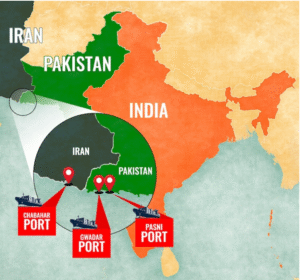History is one of the most important and interesting parts of the UPSC Civil Services Examination (CSE). Questions from Ancient, Medieval, and Modern Indian History form a significant portion of both Prelims and Mains. While History may seem vast, with the right approach and selective study, it can become a high-scoring subject.
This guide provides the best strategy to tackle UPSC History – covering Ancient, Medieval, and Modern History with recommended books, preparation tips, and practice strategies.
Importance of History in UPSC
Prelims: Around 15–20 questions are asked every year, mainly from Ancient and Modern Indian History.
Mains: General Studies Paper I covers Ancient, Medieval, Modern, and Post-Independence History.
Optional Subject: History is also available as an optional subject, making it even more relevant for many aspirants.
UPSC History Syllabus Breakdown
Ancient Indian History
Prehistoric cultures in India
Indus Valley Civilization
Vedic Period (early & later)
Mahajanapadas, Buddhism, Jainism
Mauryan Empire (Administration, Ashoka, Arthashastra)
Post-Mauryan period (Kushans, Satavahanas)
Gupta Age (Golden Age of India)
Sangam Age, Pallavas, Cholas
Art, Architecture, and Literature
Medieval Indian History
Delhi Sultanate (Slave, Khilji, Tughlaq, Lodhi dynasties)
Vijayanagara and Bahmani Kingdoms
Bhakti and Sufi Movements
Mughal Empire (Akbar, Jahangir, Shah Jahan, Aurangzeb)
Administration, Economy, Art, Architecture
Marathas and regional kingdoms
Modern Indian History
Advent of Europeans and British rule
British expansion and economic policies
Social reform movements (Raja Ram Mohan Roy, Dayanand Saraswati, Vivekananda, etc.)
Revolt of 1857
Indian National Movement – Moderates, Extremists, Gandhian Era
Important Acts (1909, 1919, 1935, etc.)
Role of Indian leaders and freedom fighters
Partition and Independence of India
Recommended Books for History Preparation
Ancient History
NCERTs (Class 6–12) – for basics
R.S. Sharma – Ancient India
NIOS Material – Culture & Heritage
CCRT Website – Indian Culture
Medieval History
NCERTs (Class 7–12)
Satish Chandra – Medieval India
Modern History
Spectrum by Rajiv Ahir – A Brief History of Modern India
Bipan Chandra – India’s Struggle for Independence
NCERTs (Class 8–12)
Best Strategy to Prepare Ancient, Medieval & Modern History
1. Start with NCERTs
Read Class 6–12 NCERTs for strong basics.
Highlight key events, dates, and personalities.
2. Focus on Chronology
Create a timeline of events for each era.
This helps in linking causes, effects, and continuity in history.
3. Prioritize Modern History
Modern History carries the highest weightage in both Prelims and Mains.
Focus on freedom struggle, social reforms, important acts, and leaders.
Revise Spectrum multiple times.
4. Study Ancient & Medieval Smartly
For Prelims, focus on art, architecture, culture, and religion (frequent UPSC themes).
For Mains, prepare short notes on dynasties, administration, and cultural contributions.
5. Link History with Culture & Polity
Example: Buddhist councils (History) linked with art & architecture (Culture).
Constitutional developments under British rule (History) linked with Polity.
6. Make Notes & Mind Maps
Summarize each topic in bullet points for quick revision.
Use mind maps for dynasties and movements.
7. Practice Previous Year Questions
Analyze UPSC past 10 years papers to understand trends.
Practice MCQs for Prelims and write structured answers for Mains.
8. Revision is the Key
Revise Spectrum and NCERTs multiple times.
Keep a fact-sheet of dates, acts, and events for last-minute revision.
Tips for Answer Writing in Mains
Always start with context (event background).
Use chronology in your answers.
Mention key personalities, acts, or policies.
Add maps or diagrams where relevant.
End with impact and conclusion.
Conclusion
History may appear vast, but with smart preparation, it can become one of the most scoring subjects in UPSC. The best strategy is to prioritize Modern History, study Ancient & Medieval selectively, integrate culture, and revise multiple times. Regular practice with previous year questions will sharpen both Prelims accuracy and Mains answer writing.
FAQs on Preparing History for UPSC
Q1. Which part of History is most important for UPSC?
A: Modern Indian History carries the highest weightage, followed by Ancient History (culture and religion). Medieval History has fewer questions but cannot be ignored.
Q2. Is Spectrum enough for Modern History?
A: Yes, Spectrum is the most recommended book. Supplement it with NCERTs and Bipan Chandra for deeper understanding.
Q3. How to remember dates in History?
A: Focus on major events and link them with causes and outcomes. Create a timeline chart for revision.
Q4. How many questions come from History in Prelims?
A: On average, 15–20 questions are asked every year, with maximum weightage from Modern Indian History.
Q5. How to prepare History for UPSC Mains?
A: Focus on analysis rather than memorization. Link events with their socio-economic and political impacts. Write structured answers with examples.
Q6. Should I read Old NCERTs or New NCERTs?
A: Both are good. Old NCERTs (R.S. Sharma, Satish Chandra, Bipan Chandra) provide depth, while new NCERTs are more concise.
✅ SEO Keywords Included: UPSC History preparation, Ancient History for UPSC, Medieval History UPSC strategy, Modern History for UPSC, Spectrum book for Modern History, best strategy for UPSC History, IAS History preparation.







